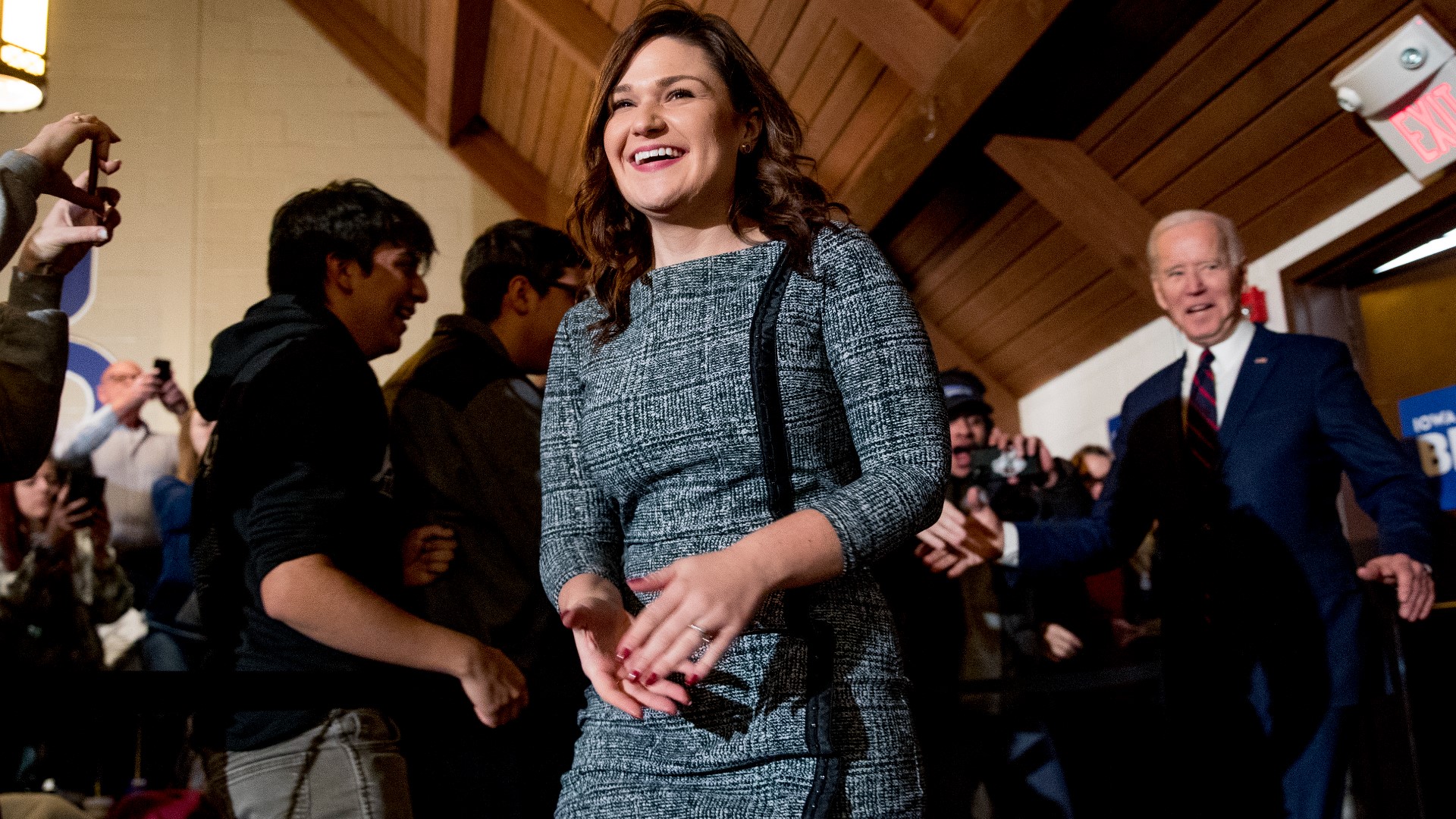DES MOINES, Iowa — The Iowa Supreme Court on Friday ruled that Democratic Senate candidate Abby Finkenauer qualifies for the primary ballot, rejecting a lower court decision and allowing her to continue her campaign for the nomination and the chance to face longtime Republican Sen. Charles Grassley.
The court’s decision leaves Finkenauer as the likely frontrunner in a race with two lesser-known candidates ahead of Iowa’s June 7 primary. The winner will run against Grassley, who is seeking an eighth term in the Senate.
The court rejected a lower court's ruling that found that Finkenauer failed to meet a state law that requires candidates to submit at least 100 signatures from at least 19 counties to qualify for the ballot. A majority of justices agreed that a Polk County judge was wrong when he ruled that three signatures from two counties were invalid, leaving Finkenauer without enough signatures.
The Iowa Supreme Court ruling affirmed an earlier decision by an election panel that Finkenauer had qualified for the ballot. Two Republican activists had brought the initial challenge and appealed the panel’s decision to the district court.
READ THE FULL RULING BELOW
Finkenauer called the Polk County Judge Scott Beattie's ruling a “meritless partisan attack.” Beattie was appointed in 2018 by Republican Gov. Kim Reynolds, who also appointed four justices to the Iowa Supreme Court.
Finkenauer, of Dubuque, is best known as one of the first woman elected to the House from Iowa and the second-youngest female House member in U.S. history, winning election in 2018 at the age of 29 and just 10 months older than Rep. Alexandria Ocasio-Cortez, of New York.
The other Democrats seeking the Democratic nomination are Mike Franken, a retired Navy admiral, and Glenn Hurst, a doctor and Minden City Council member.
Any of the Democrats would be viewed as longshots against Grassley, who has held elected office since 1959. He was elected to the U.S. House in 1974 and to the Senate in 1980.

